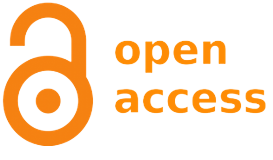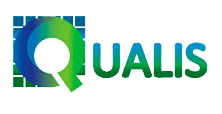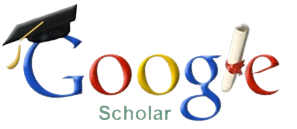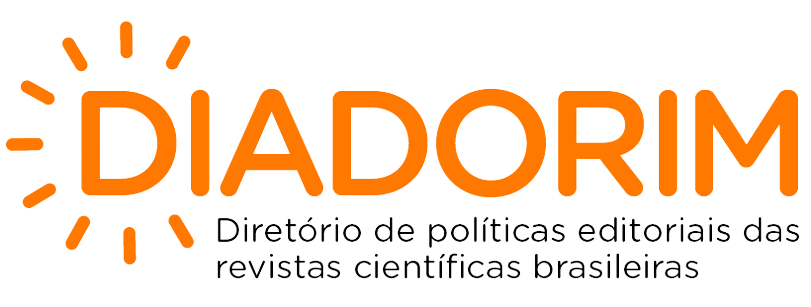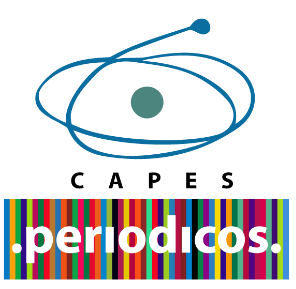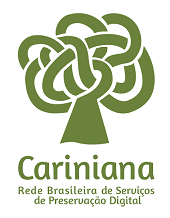Library of things
implementation of good-practices for the transition from a linear economy to a circular economy
DOI:
https://doi.org/10.5433/2317-4390.2023v12n1/2p1Keywords:
Llibrary of things, Shared economy, Circular economy, Agenda 2030Abstract
Objective: It aims to create a library of things in the Science and Technology Library (CT) of the Federal University of Paraná from the users' point of view for the sharing of objects, as one of the main axes of the collaborative economy.
Methodology: It develops an exploratory, quantitative and qualitative research and it uses a survey for the collection procedures. It applies a questionnaire composed of five objective questions and two open questions as a data collection instrument.
Results: As a result, there was great acceptance of the implementation of this new service by the survey respondents, in which they even put as suggestions other items that had not been mentioned in the survey, such as: notebook, lab coat, laboratory goggles, backpack, raincoat etc.
Conclusions: the implementation of the Library of Things highlights the transition from a linear economy to a circular economy and collaborates with the 2030 Agenda movement.
Downloads
References
AMELI, N. Libraries of things as a new form of sharing: pushing the sharing economy. The Design Journal, [S. l.], v. 20, 2017. Disponível em: https://doi.org/10.1080/14606925.2017.1352833. Acesso em: 20 mar. 2022.
BARROS, A. J. S.; LEHFELD, N. A. S. Fundamentos de metodologia: um guia para a Iniciação Científica. 2. ed. São Paulo: Makron Books, 2000.
BEAVERTON CITY LIBRARY. Beaverton City Library. 2022. Disponível em: https://www.beavertonlibrary.org/. Acesso em: 24 abr. 2022.
BELLUZZO, R. C. B. Competência em informação (CoInfo) e midiática: inter-relação com a Agenda 2030 e os Objetivos de Desenvolvimento Sustentável (ODS) sob a ótica da educação contemporânea. Folha de Rosto: Revista de Biblioteconomia e Ciência da Informação, [S. l.], v. 4, n. 1, p.15-24, 2018. Disponível em: https://periodicos.ufca.edu.br/ojs/index.php/folhaderosto/article/view/289/244. Acesso em: 01 maio 2022.
BIBLIOTECÁRIAS (IFLA). As bibliotecas e a implementação da Agenda 2030 da ONU. out. 2015. Disponível em: https://www.ifla.org/wp- content/uploads/2019/05/assets/hq/topics/libraries-development/documents/libraries- un-2030-agenda-toolkit-pt.pdf. Acesso em: 01 maio 2022.
BRAZÃO, M. P. M. C. A reutilização de recursos como forma de promoção da economia circular no contexto universitário: o caso do Iscte. 2020. 81 f. Dissertação (Mestrado em Estudos do Ambiente e da Sustentabilidade) - Instituto Universitário de Lisboa, Lisboa, 2020. Disponível em: http://hdl.handle.net/10071/22166. Acesso em: 20 mar. 2022.
CASTELLS, M. Galáxia da Internet: reflexões sobre a Internet, os negócios e a Sociedade. Rio de Janeiro: Zahar, 2003.
FEDERAÇÃO INTERNACIONAL DE ASSOCIAÇÕES E INSTITUIÇÕES
GERALDO, G.; PINTO, M. D. S. Aspectos epistemológicos da ciência da informação e a construção conceitual da sustentabilidade informacional. In: BARBALHO, C. R. S.; INOMATA, D. O.; FERNANDES, T. B. (org.). Sustentabilidade Informacional em Ecossistemas de Conhecimentos. Manaus: Edua, 2021a. 229 p. E-book.
GERALDO, G.; PINTO, M. D. S. Informational sustainability in libraries: enhancing more inclusive, egalitarian and sustainable services. In: NEW LIBRARIANSHIP SYMPOSIA, 2., 2021b, Columbia. Proceedings [...]. Columbia: UCS, 2021. [p. 1-13]. Disponível em: https://scholarcommons.sc.edu/cgi/viewcontent.cgi?article=1065&context=newlibrarianshipsymposia. Acesso em: 01 maio 2022.
GERALDO, G.; PINTO, M. D. S. Percursos da Ciência da Informação e os objetivos do desenvolvimento sustentável da agenda 2030/ONU. Revista ACB: Biblioteconomia em Santa Catarina, Florianópolis, v. 24, n. 2, p. 373-389, ago. 2019. Disponível em: https://revistaacb.emnuvens.com.br/racb/article/view/1597. Acesso em: 01 maio 2022.
GUARIN, J.; O'CONNOR, M. Library of Things: a movement to reduce consumption. Center for EcoTechnology, [S. l.: s. n.]: 2019. Disponível em: https://www.centerforecotechnology.org/pt/library-things-borrowing-recycling- movement/. Acesso em: 01 maio 2022.
HELLER, B.; VALERIM, P.; BOURSCHEIDT, T. O. Biblioteca das coisas no contexto universitário: a experiência da Biblioteca Feevale. In: CONGRESSO BRASILEIRO DE BIBLIOTECONOMIA, DOCUMENTAÇÃO E CIÊNCIA DA INFORMAÇÃO, 28., 2019, Vitória. Anais [...]. Vitória: 2019. Disponível em: https://portal.febab.org.br/cbbd2019/article/view/2284. Acesso em: 01 maio 2022.
HERHARDT, T. E.; SILVEIRA, D. T. (org.) Métodos de pesquisa. Porto Alegre: Editora da UFRGS, 2009. 114 p. Disponível em: http://www.ufrgs.br/cursopgdr/downloadsSerie/derad005.pdf. Acesso em: 05 abr. 2022.
KNECHTEL, M. R. Metodologia da pesquisa em educação: uma abordagem teórico-prática dialogada. Curitiba: Intersaberes, 2014.
LONDON THING LIBRARY. Welcome to the London Thing Library: a space where londoners share and learn together, 2022. Disponível em: https://thinglibrary.ca/. Acesso em: 08 abr. 2022.
MARIA, R.; BERNARDO, J. S.; VARVAKIS, G. J. A biblioteca na era dos serviços compartilhados: o potencial da Biblioteca das Coisas. Revista ACB: Biblioteconomia em Santa Catarina, Florianópolis, v. 26, n. 4, p. 1-16, 2021. Disponível em: https://dialnet.unirioja.es/servlet/articulo?codigo=8239573. Acesso em: 06 abr. 2022.
ORGANIZAÇÃO DAS NAÇÕES UNIDAS (ONU). Objetivos do desenvolvimento sustentável. 2022. Disponível em: https://brasil.un.org/pt-br/sdgs. Acesso em: 01 maio 2022.
ORGANIZAÇÃO DAS NAÇÕES UNIDAS (ONU). Transformando nosso mundo: a Agenda 2030 para o Desenvolvimento Sustentável, 2015. Disponível em: https://www.undp.org/. Acesso em: 01 maio 2022.
SHARE SHAD LIBRARY OF THINGS. Borrow 350+ useful items at a low cost from the world's first mobile library of things. 2022. Disponível em: https://www.shareshed.org.uk/. Acesso em: 05 abr. 2022.
SOUZA, C. A. P.; LEMOS, R. Aspectos jurídicos da economia do compartilhamento: função social e tutela da confiança. In: ZANATTA, R. A. F.; PAULA, P. C. B.; KIRA, B. (org.). Economias do compartilhamento e o direito. Curitiba: Juruá, 2017. p. 59-77.
TORONTO TOOL LIBRARY. Access, share, innovate. 2022. Disponível em: https://www.torontotoollibrary.com/. Acesso em: 22 abr. 2022.
ZANATTA, R. A. F. Economias do compartilhamento: superando um problema conceitual e o direito. Curitiba: Juruá, 2017.
Downloads
Published
How to Cite
Issue
Section
License
Copyright (c) 2024 Vilma Machado, Giovanna Carolina Massaneiro dos Santos, Paula Carina de Araújo, Fernanda Cristina Barbosa Pereira Queiroz

This work is licensed under a Creative Commons Attribution 4.0 International License.
A revista se reserva o direito de efetuar, nos originais, alterações de ordem normativa, ortográfica e gramatical, com vistas a manter o padrão culto da língua e a credibilidade do veículo. Respeitará, no entanto, o estilo de escrever dos autores. Alterações, correções ou sugestões de ordem conceitual serão encaminhadas aos autores, quando necessário.
O conteúdo dos textos e a citação e uso de imagens submetidas são de inteira responsabilidade dos autores.
Os trabalhos publicados passam a ser propriedade da revista Informação& Profissões, ficando sua reimpressão total ou parcial sujeita a autorização expressa da revista. Em todas as citações posteriores, deverá ser consignada a fonte original de publicação, no caso a Informação&Profissões.




